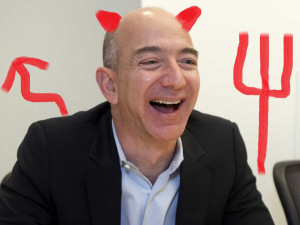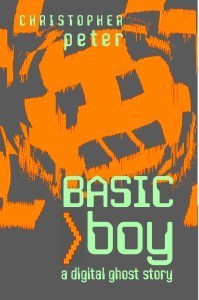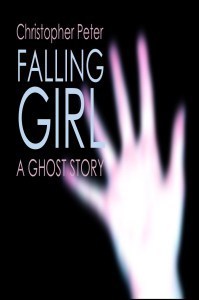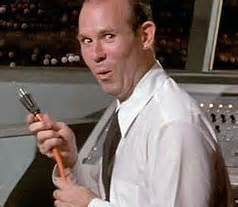Christopher Peter's Blog, page 8
September 13, 2014
The Dos and Don’ts of Dialogue Tags
Really good post, and re-blogged because I totally agree and I couldn’t put it better myself. I think every writer should read this, because it’s one of the biggest pitfalls of inexperienced writers – and I have to say a few published ones I’ve come across too. I completely agree that balance is key, but the bias should be towards the humble ‘said/says’ precisely because – as you say – the tag is there to point towards the dialogue, not itself. There are exceptions of course. The other thing that grates with me is the completely unnecessary tag – e.g. ‘I’m sorry you’re upset,’ he commiserated. That’s not necessary because it’s obvious from the text that he’s commiserating.
 Originally posted on A Writer's Path:
Originally posted on A Writer's Path:
Writers use dialogue tags constantly. In fact, we use them so often that readers all but gloss over them. They should be invisible. However, there are ways to misuse them and make them stand out.
In an effort to avoid that, let’s take a closer look at dialogue tags. Toward the end of “Tag travesties” is something I sorely wish someone had told me before I started writing.
View original 839 more words


September 12, 2014
Draft 2, here we go …
Last time I wrote about my new project, a children’s book provisionally titled Danny Chaucer’s Flying Saucer. The 27,000ish word first draft was finished a few weeks ago. I churned it out pretty quickly – as I’ve mentioned before I’m a bit of a first draft bodger. I had a rough plan but to be honest a lot of it took shape as the words hit the screen.
After that was finished I deliberately left it a couple of weeks. Then I held my nose and started to review what I’d written. This is a tricky time, because that first draft is – how should I put it politely? – a mixed bag. Or a pile of steaming horse manure, if you’re less generous. Bursting with typos naturally, but there will also be problems with plot and pacing, uneven and underdeveloped characterisation, poor sentence construction, too many adverbs, and more than the odd cliché. (Probably also too many parentheses – I’m a terror for that.)
The purpose of the first draft review is to find all those nasty little (and big) issues, to painstakingly (and painfully) document them. And to resist making any changes at all while I’m doing it. It hurts, let me tell you. But it’s a necessary step before I try to rush in and fix everything.
I keep positive in two ways. First: along with the wrinkles, hopefully I will also see a lot that’s good, or potentially good, in the first draft. Things that will be kept, or can be improved and enhanced, as well as things that need to fundamentally changed or cut out altogether. I should glimpse that good book that’s fighting to get out – and my first draft review will be the first step towards its freedom. Second: having written two books before, I know from experience that this really works, that the book will get better as I review and redraft. Something much better will emerge at the other end. Losing the dross is just part of that process. It can’t be avoided.
If you’re interested, here is my completed first draft review of DCFS. I don’t expect anyone to read all of this – indeed, much of it won’t mean anything if you haven’t read the book yourself. But anyway there are three sections:
A chapter-by-chapter plot synopsis
A list of characters and their main traits
Notes on what I think is good, bad and indifferent, along with ideas for improvement – generally, and chapter by chapter.
What this shows is that there’s a lot of work ahead in the second draft. The good thing is that I think the basic structure and plot is fundamentally OK. That’s a relief, because that’s often the hardest thing to fix without virtually a complete re-write. There’s lots to put right though. And one of my main conclusions is that I think there are too many characters (a common problem in my first drafts as it happens) and I could lose one of them. And swap the genders of two more! Well sometime you need to be radical …
Now I feel ready to dive into the second draft proper. I aim to take about 2-3 weeks for that.
And then? That’s when I feel ready to show it to someone else. Someone who will give that vital, fresh perspective and tell me what’s really wrong with it – everything I’ve missed. All good fun!
Wish me luck …


September 8, 2014
Introducing … Danny Chaucer’s Flying Saucer
What would you do if a flying saucer landed outside your house?
Danny Chaucer is lonely and bored. Nat Ford is the new girl at school and spends half her time trying to dodge the bullies. Nothing interesting ever happens in their dead-end village. Nothing that is until one still, starry night when something happens behind the trees at the end of Danny’s garden. He’s not quite sure what – except that suddenly everyone seems to be looking for something, including the sinister Captain Frost.
There might be only one way to escape – and that’s up …
That’s my first stab at the blurb of my new book, provisionally titled Danny Chaucer’s Flying Saucer. (No idea whether that title will survive; I just like the fact that Chaucer rhymes with Saucer. Opinions welcome!)
You’ve probably worked out it’s a children’s book. More specifically it’s aimed at roughly 8-11 year olds. This is a departure for me, as BASIC Boy and Falling Girl are 11+ up to YA territory. So why have I gone younger for the new one? Well there are several reasons.
The first is that, when I was a kid, I did actually daydream about having my own flying saucer, of being able to just take off, to cruise though the skies and up to the stars, soaring far and above my problems. Of course I’d be the envy of everyone. Probably it’s the classic introvert’s dream – to be liked and admired, but also to be able to get away, to stand apart. Cool at last.
(Mind you, that’s not quite how it works out for Danny, Keeping the saucer secret is going to be one of his biggest problems – a lot of people will be very interested in something like that.)
The second reason is simply that, like a lot of writers, I want to try my hand at different things. (One day I’d like to write an adult novel too, but not just yet.) I don’t think I’ve finished with YA, but I want to see if I can write for children. The fact that I have two boys, aged six and ten – both of whom need some encouragement to read very much – is part of the motivation too.
I believe children’s literature is tremendously important, and writing it well is a talent sadly too often underrated. To create stories that children can understand and relate to, without patronising them, to inspire and to instil a love of reading – what a wonderful thing that is.
Third, I think this concept has good series potential. The first book sets the scene for more to come. I mean, there’s lots of places you can go in a flying saucer, right? And it does seem that, if you want to sell some books, having a series is a definite advantage. Producing more, shorter books, more frequently, makes sense to me as a strategy. (I also have some marketing ideas – not unrelated to the age of my sons.)
And finally, I have a sneaking suspicion that space is going to get bigger over the next few years. (Well it’s already pretty big, but you know what I mean.) We are less than five years away from the fiftieth anniversary of Neil Armstrong’s historic first step on the surface of the moon. There is the fairly imminent prospect of the first commercial space flight, and perhaps a manned mission to Mars in the not too distant future. And that’s just from the US and Europe – who knows where China’s ambitions will take them?
And have you heard about NASA’s flying saucer? It’s all happening you know.
I’m aiming to have Danny Chaucer’s Flying Saucer finished in early 2015. The first draft is done, the second is underway. Next time I’ll talk about my approach to the writing, what I’ve done so far and how I plan to get from here to publication.


August 17, 2014
Are you a first draft bodger?
I am a very happy writer, having a few days ago finished the first draft of my third novel. I will be sharing more about my new project next month. It’s a middle-grade children’s story – a departure for me, since BASIC Boy and Falling Girl are both teen/YA. This means that it’s somewhat shorter than what I’ve written before, the first draft coming in at 27,000 words. And of course there’s still a lot of work ahead. Both BASIC Boy and Falling Girl went to five or more drafts, and I don’t expect this one to be much different.
It also feels especially good because, as I shared not long ago, I’d been finding it quite difficult this year to really get going with anything, let alone finish it. The first draft is always a milestone and I’m relieved to have stumbled past it once more. Maybe I am still a writer after all!
Mind you, I’ve realised that I’m something of a first-draft bodger. In case you’re not familiar with the term ‘bodge’ (it might be peculiarly British, I don’t know), it basically means to do something quickly and without too much care. I don’t want to ‘bodge’ my books – but the way I see it, a first draft is always going to be a highly imperfect work-in-progress which remains in need of a lot of TLC. It’s a start, basically, not anything close to the finish.
So, I try to whack out my first drafts pretty quickly, once I’ve got a good idea of plot, structure and the characters involved. I don’t spend much time going back and fixing things – I’d rather do that in the second draft, when I can view it all as a whole. At that point I’m in a far better position to assess the novel, its structure, strengths and weaknesses etc. That said, if I see any obvious errors or something that clearly isn’t working as I’m writing the first draft, I will change it right away; but I just don’t look too hard for those things.
I imagine some people approach this a little differently, and spend a lot longer crafting their initial draft, so that perhaps less radical work is needed further down the line. Everyone’s different and I’m not saying that’s wrong. If that works for other writers, then great.
There’s another thing I’m quite happy about, which is that recently this blog passed the one hundred followers mark. I’m amazed that that many people deem my random ramblings as worth following, so if you’re one of them then thank you.
Finally – I’m going on holiday tomorrow with my family to France, so taking a rest from WordPress for a couple of weeks, though I may dip in occasionally when I find wifi. Hope you all enjoy the rest of the summer. I think I will – though of course part of my brain is still mulling over the first draft and thinking of possible improvements, even while I’m trying to shove it to the back of my mind, ready to approach it again next month with fresh eyes.
Au revoir!


July 29, 2014
Writing rules – helpful or not?
Writing rules – don’t you love ‘em? Do this, don’t do that. I wonder if anyone’s ever added them all up? I’d try it myself if I ever had a few months to waste.
You might get the impression I don’t like them, but actually that’s not the case. Even if I’ve seen many of them before it’s always helpful to read them again, and if nothing else they can provoke some interesting debate.
For what it’s worth, here are my own rules. I can’t claim any originality here, but these are derived and distilled from the advice I’ve found most helpful:
Write! Start, and keep going. A writer writes. And the more they write, the better they’ll get.
Enjoy it – but also expect it to be work, and really hard work at times.
Focus on quality. Never stop trying to improve – and a big part of that is keeping going (as in #1).
Revise and revise again. Your first draft will be a deeply flawed rough diamond if you’re lucky, and total garbage if you’re not. But something much better will emerge as you keep hacking away at it.
If you’re serious about publishing – whether self- or conventionally – you must get your work edited, reviewed and/or beta-read by someone whose judgement you trust. You will never achieve your best working totally on your own.
Take careful notice of all the rules and advice you read, even when you don’t think you completely agree with it. This applies especially to advice from experienced writers, agents and publishers. These people know what they’re talking about. Having said that, writing is more art than science and no-one is always right about everything, and much advice is contradictory, so you will need to be selective in how you apply it all. And remember …
… there is technically no such thing as ‘never’ in writing. Adverbs, adjectives, exclamation marks, parentheses and the myriad other things frequently decried – they are all tools at your disposal. But remember there are reasons why you’ve been warned about them. The best advice is to use them sparingly, because your writing will generally be improved by their absence.
Some ‘nevers’ – like don’t start a book with a dream sequence, a prologue or the weather – are really more about fashion or personal opinion than anything else. That said, if you’re trying to get conventionally published then it’s undoubtedly wise to abide by what agents and publishers are saying about such things. (I’m not at the moment – probably a good thing since BASIC Boy starts with a dream sequence, with weather mentioned in the second paragraph – hmmm…)
Try to avoid clichés. Find fresh, more interesting (but appropriate and meaningful) ways to say everything.
Use the best words to tell your story, and not more than necessary. Cut out what isn’t really needed. It will usually take several drafts to do this effectively (see #4 above), and later drafts will almost always be shorter, sharper and more readable as a result.
Finally … always be positive, work hard at your craft and keep chasing your dreams – whatever they may be. I believe that success, in whatever form that might take, will come if you do that. For most of us that won’t be becoming a full-time, best-selling author – but even that is possible and if that’s your dream, then great. But success might mean simply becoming a good writer, producing work you can be proud of, that gives you and some others pleasure. And if you write pretty much for your own enjoyment, rather than to be published, feel free to ignore any or all rules, including those above.
That’s it. I could add more, but for me that pretty much covers it.
And I didn’t even mention ‘show don’t tell’, POV or speech tags! Not because I don’t care about such things, but more that if I start listing all the fiddly stuff I look at while editing my work then this post will go on forever. No-one wants that. Maybe some other time, you luck things.


July 28, 2014
The power of words
Reading and watching the news recently, with all the dark and deranged things going on (Gaza, Ukraine, Boko Haram, etc. etc.), it got me thinking not only about those things but about the various reactions to them. In the UK, as I guess everywhere, there’s been a fierce debate about the situation in Gaza and Israel’s role in it. And there’s been a lot of anger expressed, and many remarkably fixed and certain views about who’s doing what wrong and what they should really be doing instead.
I say ‘remarkably’ because, personally, I think the Palestine-Israel problem is a hugely complex, difficult and entrenched one that many more informed and well-placed people than me have proved sadly unable to untangle and resolve. Which makes it like an awful lot of other problems in the world. And yet people seem indecently, enthusiastically quick to take sides and to paint a black-and-white picture of victims and villains. Sometimes that bias is open and acknowledged, and sometimes less so, but more often than not it’s there in so much of what’s being written and said about Gaza and elsewhere.
And often that bias is shown in something as subtle as the writer’s choice of words. Take these examples.
A particular point of view is reported by the media. If you agree with that point of view, it’s a viewpoint, a perspective or an explanation. A response. Perhaps it’s even just telling it how it is. But if you disagree, then it’s propaganda. And that propaganda is peddled by a lobby.
If an individual, group or country continues with a controversial course of action in the face of strong opposition, and you approve of it, you might say they are being principled, resolute or robust. Perhaps courageous. If you don’t agree, you’re more likely to say they are being dogmatic, doctrinaire or divisive. Possibly even callous.
Whereas if that party changes its approach following criticism, and you agree with that, then you would probably describe them as responsive, humane or flexible. They’re listening. But then, hang on, they might be weak, indecisive, inconsistent or bending with the wind. Quite possibly unreliable or unprincipled. Oh dear.
And anyone putting over a different point of view might kindly be called thoughtful, open-minded or impartial. Or then again, less kindly, branded an apologist, a dupe or a useful idiot. The might even be a denier, which is almost always bad, whereas a contrarian is generally better.
Writers should be aware of the power of words; and I’ve no doubt many of the above examples are used in full knowledge of their impact and subtext, deployed deliberately to support a particular point of view. Other times they are used less artfully, an unconscious choice that may reveal more about their user’s beliefs and pre-conceptions that they imagine.
No wonder words should be used with care.


July 25, 2014
37 things that always happen during a heatwave
OK it’s got nothing to do with writing, but I saw this article today and found it quite amusing. The weather in the UK has been amazingly warm recently and I can identify with many of the things mentioned. Brits aren’t very good in hot weather – just not used to it. Sleeping at night is a particular issue.
And of course summer can be a big distraction from writing – and quite rightly so, really. Who wants to be hunched up in front of a keyboard, in a dim curtained room, while the sun blazes invitingly outside? Well … sometimes that sounds pretty good actually – beats getting sunburnt – but I do love summer and it’s good to get out and about. Heaven knows, it’s cold and wet enough of the time in the UK, we’ve got to make the most of fine weather.
But I have been getting some writing done too, here and there, and the project I’m working on is something of a departure for me – more on that soon. In the meantime – enjoy the summer* everyone.
(* Except if it’s winter where you are, in which case – well, erm, enjoy that …)


July 7, 2014
Is Amazon actually evil?
Are you pro- or anti-Amazon? Or somewhere in between? Many people seem to be jumping to condemn them, especially now they’re in a not-so-secret dispute with the big publisher Hachette. Reading some of the increasingly lurid and extreme criticisms, I’ve felt my level of bemusement rising along with the rhetoric.
So, to get it off my chest, I wrote a piece on it a few days ago. I then had second thoughts about posting it, not because I changed my mind about the contents but rather because I’m never too sure how many people actually read longer opinion pieces like this. So if you don’t want to read it all (it’s about 1,400 words), here’s a very quick précis:
We don’t know the details of the Amazon-Hachette dispute, even though we can speculate.
So the fact that so many have jumped on the anti-Amazon bandwagon probably says more about their pre-conceived notions and/or their self-interest than anything else.
Much of the criticism levelled at Amazon has been extreme, hysterical, unfair, bizarre, short-sighted, hypocritical, or some combination of the above.
They are not a threat to the existence of books or literature – or at least, no more than the conventional publishing industry is.
Amazon aren’t perfect but they are generally very good at what they do.
They have, on balance, been a good thing for writers.
They are not an all-powerful monopoly, and what power they do have will not last forever.
That’s basically it. Do you agree or not? (And should I be saying ‘Amazon is ..’ or ‘Amazon are …’? Not quite sure.) Comments welcome.
And for those interested, here is the longer version …
Judging by the tidal-wave of criticism engulfing them during the past few weeks, since its dispute with the publisher Hachette first became public, you might easily conclude that there must be more than a whiff of sulphur lingering around the e-commerce giant. It certainly seems to have become highly fashionable to be anti-Amazon – a position that was increasingly popular even before the Hachette spat blew up, and has become exponentially so since.
Amazon have been accused of all sorts of things. A cynical monopoly, bent on using its dominant position to bully and control the whole publishing industry. (The fact that Amazon sells an awful lot of things that aren’t books doesn’t normally get much of a mention. Presumably TV manufacturers can look after themselves.) Attacking publishers, authors and readers. Even threatening the future of books, of literature itself. Tax dodgers. The mafia. Vladimir Putin. Darth Vader. I haven’t yet actually heard them being compared to the Infernal One, but I’m quite sure they must have been by someone, somewhere.
Here’s just one article summarising many of the criticisms levelled by Hachette authors, bookstore owners, and various industry spokesmen.
To be fair, I’ve also seen other opinion pieces that have attempted to restore some balance to the debate. See here, here, here and here for some examples. There are a number of reasons why I agree with much of what’s argued in these articles, and why I believe that the anti-Amazon frenzy is largely misplaced and bordering on the absurd. (Actually, more than bordering – it’s crossed the border, built a big house with a massive swimming pool, and taken up permanent residence.)
First, and most obviously, we don’t know the precise details of the dispute with Hachette. Too many people are assuming that it must be Amazon being greedy and unreasonable, because that fits in with an existing, widely-held narrative about them and their allegedly negative effect on the publishing world. But what if Hachette are trying it on? Or what if it’s simply a bit more complicated, less black-and-white than one of them being in the right and the other in the wrong? Things are rarely that straightforward in the business world.
Second, Hachette are not some weakling little indie. They’re a substantial multinational, one of the world’s leading publishers. Admittedly not as big as Amazon, but – crucially – be in no doubt they can hold their own in corporate guerrilla warfare. They know full well that the prevailing mood of the industry is solidly behind them, and that other major publishers will be secretly rooting for them. It’s not insignificant that it will soon be the turn of those other publishers to enter the ring with Amazon, and that the outcome of the Hachette negotiation and the precedent it sets will therefore be highly significant for them.
Also, the recent Apple saga demonstrated that the big publishers are not above collusion, and although there’s no suggestion that anything like that is happening right now, it’s clear that their interests are closely allied in this dispute. That might be another reason why Amazon doesn’t want to lose – they must know full well this isn’t a battle with Hachette alone. Also, Amazon are not the all-powerful mega-monopoly they are too often lazily portrayed to be. All those Hachette titles can be obtained from sundry other outlets, and already a number of those outlets have taken advantage of the situation by offering the affected books at a discount, including the new J. K. Rowling (sorry, Robert Galbraith). This is not a risk-free game for either side.
Third, much of the most strident criticism of Amazon has come from those with the most invested in the status quo, such as high-profile Hachette authors who have done very nicely from the conventional industry structures and business practices. Now those authors are entitled to defend their livelihoods of course. But never forget that this industry has given us inflated e-book prices, celebrity-penned ‘novels’, and Stephanie Meyer and an endless stream of Meyer wannabees. It is not necessarily the guardian of high literature, even if it’s very quick to claim that mantle at times like this.
Fourth, there’s a not-so-faint stench of hypocrisy clinging to much of the more strident down-with-Amazon rhetoric. Big publishers are suddenly earnest cheerleaders of the small bookshop, when until recently they’ve been too busy cozying up to the big chains to notice. Those same big chains have spent years trying to extract the best possible terms from publishers, yet now Amazon are vilified for doing the same thing. Big-name authors complain that Amazon have cut the discounts on their books – and yet the same company is criticised for forcing down the price of e-books, a move that will apparently destroy conventional publishing and the livelihoods of authors (and note how those two things are implicitly conflated). It’s not apparently such a big deal that publishers attempt to inflate e-book pricing while paying the same desultory royalty rates to authors. I know that publishing is a business, and a risky and (the rare Fifty Shades-like mega-hit aside) not outstandingly lucrative one at that. They have every right to fight their corner. But, please, spare us the woe-is-me, shining guardians of literature act. It doesn’t wash.
Fifth, it seems disingenuous at best to seek to blame Amazon for many of the changes that are sweeping the industry. To be sure they’ve driven much of this change, taking a key role in popularising e-books for one thing. But they invented neither the e-book nor the Internet. Electronic publishing was happening anyway. Of course, the major publishers would far rather have carried on controlling the whole thing themselves, rather than some upstart e-commerce company yanking the carpet out from under their feet.
I might also add here that the fear and loathing of Amazon misses the point that they won’t be dominant forever. The biggest players come and go. They always have and always will. Change was their making and change will one day be their undoing. It won’t be the defenders of the status quo, but another bright young upstart that works out the next big thing and does it quicker and/or better than Amazon.
Finally, I really think that Amazon has been a power for good in many ways. They have made a vast selection of competitively-priced books more easily available to everyone. They have made self-publishing easier than ever before (though they didn’t invent that either!) – and at royalty rates far higher than those offered by conventional publishers. (Not that you can directly compare them, as Amazon don’t of course provide all the value-add services of a conventional publisher. The whole topic of whether Amazon has been a generally good thing for writers or not is a complex one – but I think on balance they have.)
Crucially, their customer service is, in my experience, generally excellent and clearly superior to that offered by most other large (or even small) companies. When you deal with Amazon, they make it seem so easy you wonder why no-one else can get it right. Everyone plays lip service to this but very few other big corporations really take it seriously enough. This is no small thing – and I believe that it’s if and when Amazon stop excelling in this area that it could all start going wrong for them.
Note that none of the above seeks to paint Amazon as a paragon of virtue, an alloyed good thing in the world. They are a big corporation. They negotiate hard and take no prisoners. And sometimes they make mistakes. But they are exceptionally good at customer service, they have (for better or worse) enabled countless indie authors to realise their dream of getting their books ‘out there’, their website has made online shopping easier than ever before, and – best of all – they’ve managed to annoy a lot of people who probably deserved to be.
And they’re not actually evil.


July 4, 2014
Free book promotion this weekend
Kindle editions of both of my novels, BASIC Boy and Falling Girl will be available on Amazon for free this weekend (July 5th & 6th). Click on the links above to see synopses and samples of the books. (Actually Falling Girl is always free on this site anyway as a multi-part PDF, but let’s face it, it’s easier to read on a Kindle.) Both books are also available as paperbacks but not, sadly, free …


July 1, 2014
Airplane shorts
A bit of movie trivia for you: last weekend I bought a pair of shorts at J. C. Penney, and they were on sale price. I now refer to them as my Airplane shorts. Why?
(Well, one reason is that I clearly have a rather weird sense of humour, but apart from that I mean.)
This is my first post for a month, I’ve just realised. This was going to be a serious, deep ‘n’ meaningful opinion piece about Amazon, specifically in light of their current dispute with Hachette. I still intend to write that, but I’ve been putting it off because I’ve struggled to find the time. Hence the short shorts thing.
There is another angle to this though. If you’ve been paying attention, and you know a bit about me, you might be thinking, ‘hang on, this guy lives in the UK, so what was he doing in J. C. Penney?’. Which is a good question. The reason is that I work in a UK office of a US-based company, and my day job recently took me to the HQ in New York. (Actually, New Jersey, but only just over the Hudson from Manhattan, and New York sounds better – sorry, NJ’ers.) Hence I found myself in Penney’s in a Jersey City mall one Saturday afternoon.
All of which made me reflect on the fact that, in common with hordes of part-time writers, I long to write full-time and hence can tend to regard my day job as a necessary evil at best and a damned pain in the proverbial at worst .. and yet that day job has compensations. Like the occasional week in NJ/NY, including a Sunday in Manhattan, which on this occasion I spent at the fabulous Metropolitan Museum of Art, one of my favourite places on earth. Plus my job is actually quite interesting – and has become a little more so recently – and I do work with some seriously nice people too. So the lesson is – I should count my blessings.
I’d still rather be writing though …
















